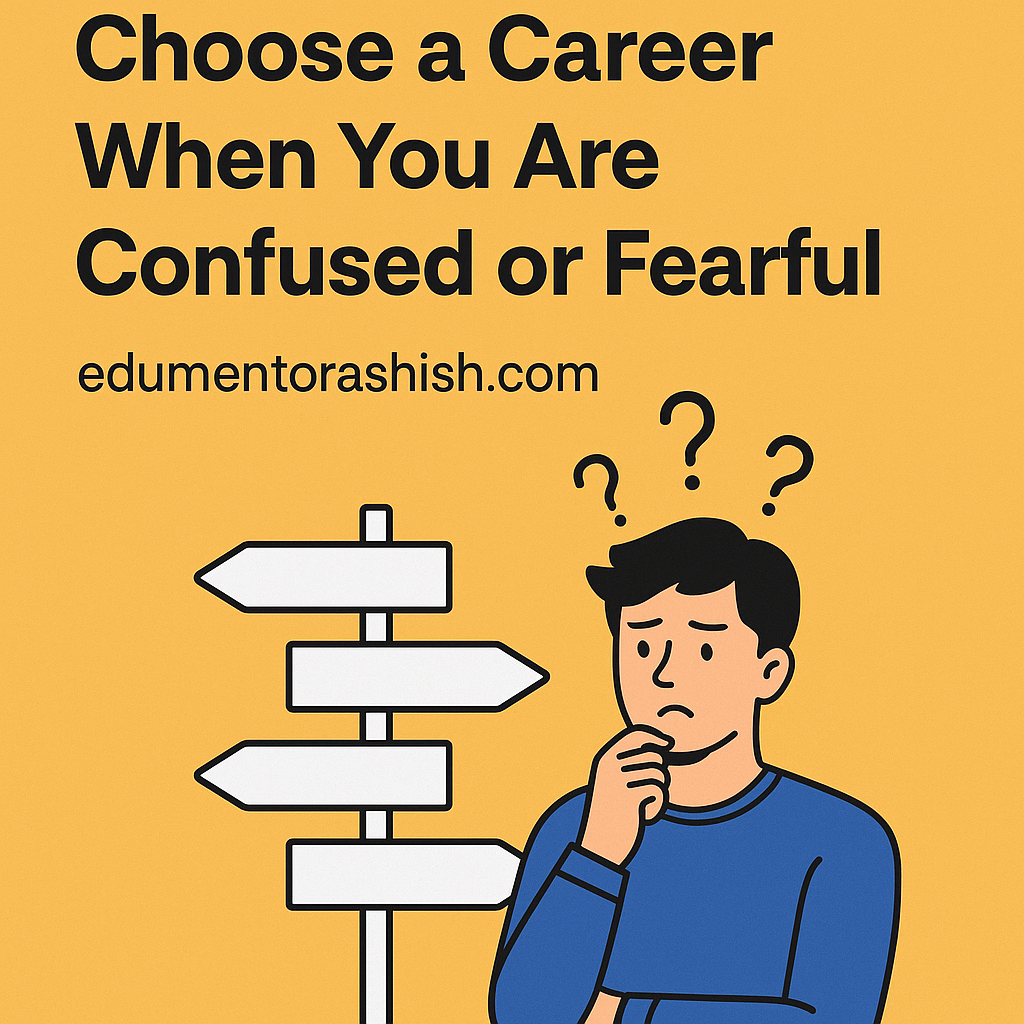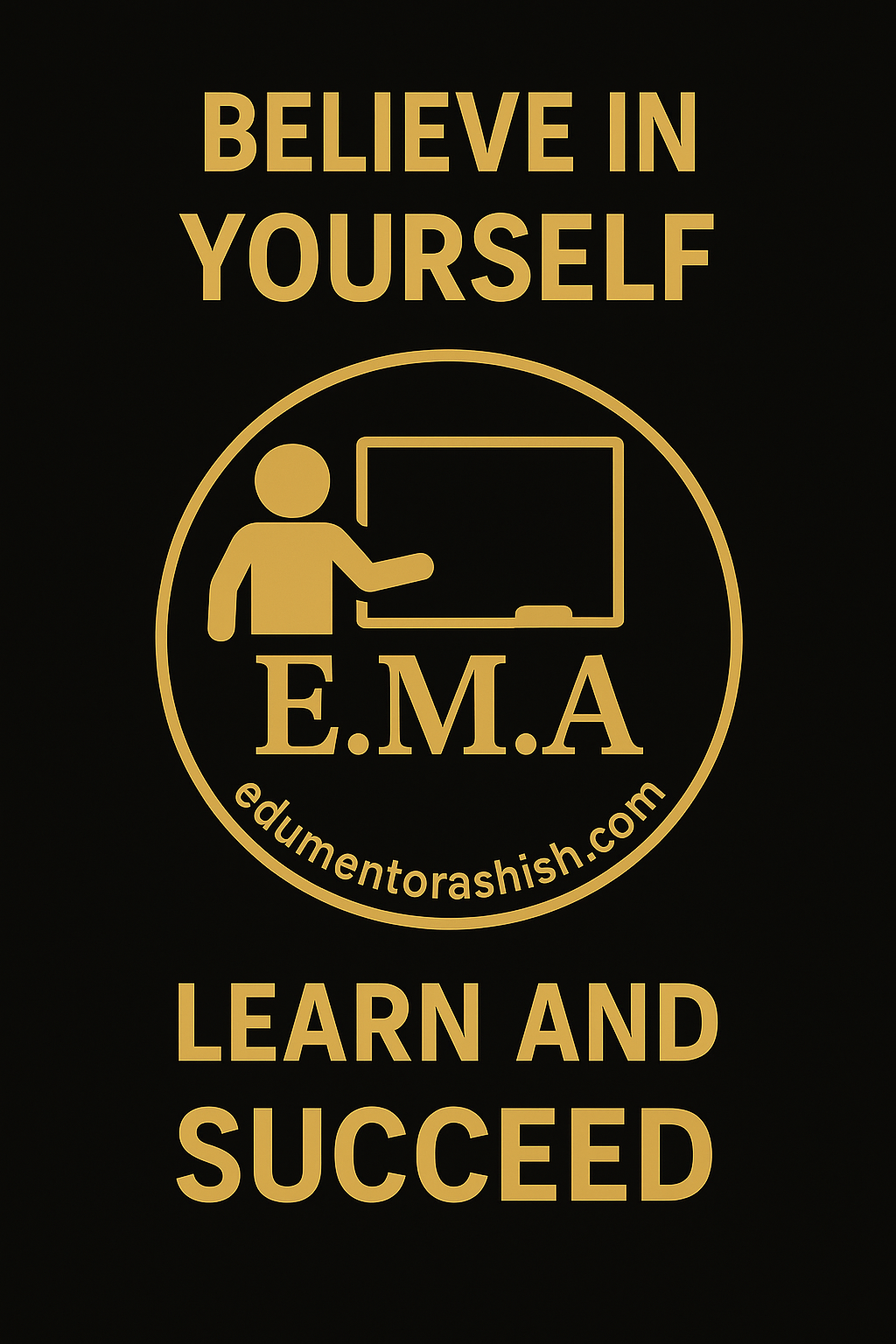1. Introduction
Imagine a student who takes admission only because his friends are also joining the same course, or a relative has suggested him, “Son, take this course, your future will be secure.” The student also thinks, let’s see, and takes admission without doing much research.
College life begins – have to attend classes, pass exams, study a little and rest of the time is fun, friendship, canteen and fest. But one day when the course ends, the same student faces a big reality – “What will I do now? What’s next?”

This is the point where maximum students feel most confused and afraid. On one side there is pressure of society, on the other side there is advice of relatives, and on top of that every friend suggests a different path according to his own understanding. Some say do higher studies, some say get a job, some say try for government exams. Everywhere there are different opinions and the student gets even more confused.
In this phase, the students feel that they are standing at a crossroad where every path is taking them in a different direction, but they do not get a clear answer to which path would be right to take. And when they do not get a clear answer, then fear and overthinking increase even more.
The purpose of this blog is to give you that clarity – a practical framework that will guide you step-by-step on how to choose a career when you are confused or afraid. Here you will not get random advice, but a structured thought and simple steps that will help you take decisions according to your strength, interest and future goals.
2. Why Career Confusion is Normal
First of all, let’s make one thing clear – career confusion is normal. Maximum students go through this phase. The reason is simple:
• Peer Pressure – You took admission with friends, now you yourself get confused seeing their choices.
• Lack of Guidance – Subjects are taught but the culture of career counselling in school/college is still weak. No one guides you systematically that “this is your strength, choose this field according to it.”

• Unclear Goals – When you yourself don’t know what you want in future (stability, money, passion, respect), then naturally every option seems attractive and confusion is created.
3. 5 steps to make it simple
A. Step 1: Pause and Self-Reflect
The first step is to pause and talk to yourself. Self-awareness is important before making a career decision.
Ask yourself these questions:
1. What subjects/activities excite me?
– Do I like research? Do I enjoy interacting with people? Or do I like analytical and logical work more?
2. What are my strengths?
– Identify your skills: communication, leadership, creative thinking, problem-solving. Personality and learning style are also important – Am I a fast learner or detail-oriented?
3. What values do I want in my career?
– Why do I want to do whatever I want to do in my career. It is important to know our “why”. Do I want a secure government job or a private sector job with freedom and creativity? Do I like to serve and help society or do entrepreneurship and risk-taking suit me?
B. Step 2: Explore Options Without Pressure
Choosing a career is an experiment, not an exam. You have to explore, without any pressure.
• Career Aptitude Tests – Online tests suggest possible career options according to your strength and interest.
• Internships & Volunteering – Practical clarity comes by doing short-term work. Example: If a pharmacy student does a research internship, he will understand whether research is for him or not.
• Talk to Professionals – Don’t talk to random people, but talk to those who are already in that field. They will tell the real picture – both pros and cons, because if you take advice from someone who is not from that field then it will be a half truth which can confuse you.
• Research Future Scope – The career scope of every course is different. It is important to do research about job opportunities, salary trends and demand.
This step will give you clarity about what you like and what will suit you in the long term.
C. Step 3: Deal With Fear & Overthinking
The biggest enemy while choosing a career is fear and overthinking. Practical techniques:
1. Write down fears and challenge them – Write down the negative thoughts roaming in your mind and make a habit of writing solutions against them. You can make this in a tabular form where in one part there will be fears and challenges, in the next part write things like “Are they real”, and in the third part write their “Probability and solutions”.
2. Break big decisions into small experiments – There is no need to take a “lifetime decision” directly. Do an internship, join a short-term course, do shadowing with a professional. Clarity will come from these mini experiments.
3. Learn from Stories – Many people start out confused but later become successful. Example: Steve Jobs took multiple turns in his life before creating Apple’s vision. Meaning, despite the confusion, clarity came. Do not ignore fear, take small steps to break it.
D. Step 4: Make a Strategy, Not Just a Choice
Career is not a one-time choice, but a long-term strategy.
• Map Skills to Opportunities
– Let us take the example of a Pharmacy student:
o Research (lab work, PhD, scientist)
o Clinical (hospital pharmacist, clinical trials)
o Industry (formulation, QC/QA, regulatory affairs)
o Entrepreneurship (own medical shop/start-up)
o Teaching (lecturer, academic field)
• Upskilling is Mandatory
– Mere degree will not help. Certificate courses, communication skills, digital literacy, networking – all this gives you that extra edge.
• Set Short-term and Long-term Goals
– Short-term: internship, certification, entrance exam prep.
– Long-term: settle in research, get a government job, or build a business.
Career clarity comes only when your decision becomes a planned roadmap.
E. Step 5: Seek the Right Mentorship
Last but not least, choose a mentor.
• It is not necessary to take advice from every friend, relative or neighbour. They do not have real knowledge of the field.
• A genuine mentor or career coach can guide you based on experience + facts.

• How to choose a mentor?
o One who is successful in that field
o One who honestly tells the pros and cons
o One who guides you according to your interest, not imposes his opinion
Remember: “A good mentor can save you from years of confusion.”
4. This is not a one-time decision
The most important thing is to understand that career is not a one-time decision. It is an evolving journey that grows with you. Today you choose a field, tomorrow you can explore new opportunities within it, or even change direction according to your interest.
Remember: “It’s better to start with clarity than to end with regret.”
It means that it is better to take small steps with clarity, instead of blindly following people’s advice and regretting later.

One very important thing for you is that you have to be ready to take responsibility for whatever decision you take, because now you cannot blame anyone else for whatever result you get. After completing my graduation, I was quite confused. And after taking a decision for the future, the first thing I told myself was that now whatever I do in future or whatever result I get, I am responsible for it. I will not blame anyone, will not make excuses and will not talk negatively about myself. After this step, I felt a tremendous positive energy which I can feel even today. The responsibility of your career is in your own hands – neither do you have to depend on luck nor on the opinion of friends/relatives. The more proactive you are, the sooner you will find the right path.
5. Conclusion & Call-to-Action
Confusion is not a negative thing. In fact, it means that you are thinking seriously about your future. All you need to do is convert this confusion into clarity.
👉 Adopt a small action plan:
a. Journal your reflections – Write down your interests, strengths and fears.
b. Explore as many possible career fields as possible – by taking an internship, short course or talking to a professional.
c. Find a genuine mentor who gives you honest guidance.
If you want any help, feel free to write me at edumentorashish@gmail.com
✨ “If you are confused about your career, start with these steps today. For more guidance, explore free resources and blogs at EdumentorAshish.com.”
You can also visit: Edumentor Ashish






I loved as much as you will receive carried out right here The sketch is tasteful your authored subject matter stylish nonetheless you command get got an edginess over that you wish be delivering the following unwell unquestionably come further formerly again as exactly the same nearly very often inside case you shield this hike
This post is jam-packed with valuable information and I appreciate how well-organized and easy to follow it is Great job!
Thank you very much for your kind words
I must say this article is extremely well written, insightful, and packed with valuable knowledge that shows the author’s deep expertise on the subject, and I truly appreciate the time and effort that has gone into creating such high-quality content because it is not only helpful but also inspiring for readers like me who are always looking for trustworthy resources online. Keep up the good work and write more. i am a follower. https://webdesignfreelancerfrankfurt.de/
This is a great article, i am simply a fun, keep up the good work, just finish reading from https://websiteerstellenlassenbamberg.de// and their work is fantastic. i will be checking your content again if you make next update or post. Thank you